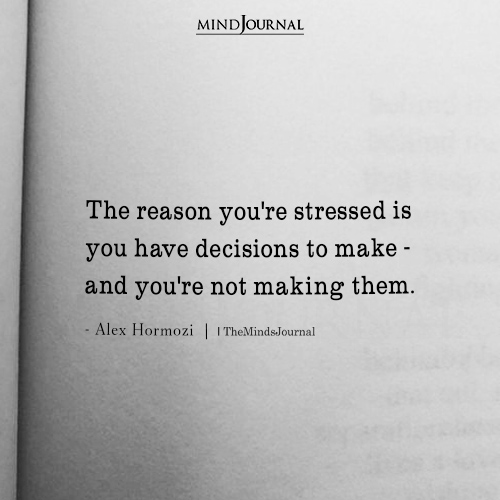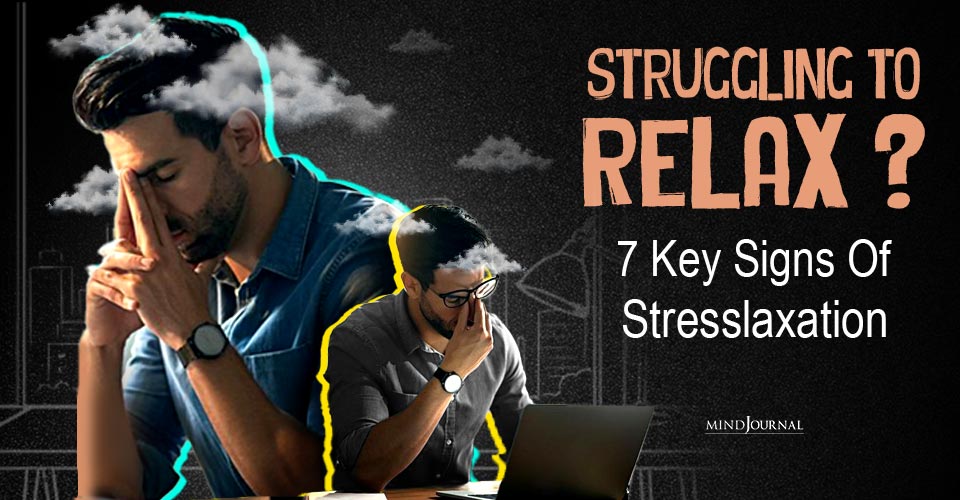In our fast-paced world, even taking time off can feel like another chore. When relaxing actually creates more stress, it becomes a problem. So how can we escape the clutches of stresslaxing symptoms?
It’s no secret that relaxing can be difficult, especially in the modern world. Many people struggle to unwind due to high stress levels, demanding jobs, constant connectivity through technology, and the pressure to always be productive.
Defined by the Urban Dictionary, “stresslaxation” is a paradoxical state when you are too stressed out to relax because not working is what’s stressing you out and it makes you even more stressed.
People feel guilty if they take time off, and psychological factors like anxiety and perfectionism can make relaxation seem impossible.

If you feel like you relate to this below are 7 stresslaxation symptoms for you to watch out for.
Read more here: Feeling Stressed? 5 Ways to Know If It’s Eustress or Distress
7 ‘Stresslaxing Symptoms’ To Watch Out For!
1. Increased Nervousness While Trying to Calm Down
You may have observed that whenever you make an effort to relax, it comes with an increased level of anxiety. Instead of feeling peaceful, sometimes worrying more makes it difficult for you to unwind.
2. Difficulty Unwinding
Mentally disengaging from the daily concerns is problematic for you during your assigned relaxation period. Your mind keeps racing due to this inability to switch off, thereby keeping up your stress levels.
3. Intense Physical Signs
Headaches, muscle tension or digestive problems may occur as you try to relax. As long as your stress remains uncontrolled these physical indications can become worse.
4. Restlessness and Grumpiness
Rather than becoming re-energized after a rest cycle, one might feel uneasy or easily irritable while attempting it. This could adversely affect relationships and make finding peace even more challenging.
5. Perfectionist Inclinations
The desire for achieving perfect relaxation could be one of your perfectionistic behaviors. Such a mindset puts pressure on oneself which is likely going to increase stress levels and leave one feeling inadequate
6. Obsessing Over Relaxation Techniques
Instead of taking comfort in them; constantly thinking about whether they are right or if they are working could become a norm with relaxation techniques. These thoughts usually undermine efforts made towards achieving calmness through this means.
7. Sleep Interruptions
One of the stresslaxing symptoms is that it interferes with your sleep and causes insomnia or poor sleep quality. The lack of restorative sleep further fuels stress levels creating an unbreakable cycle.
How To Stop Stresslaxing? 5 Stresslaxing Cures For You!
Acknowledging the fact that you are anxious or stressed and need to unwind is a positive move towards self-help. Below are a few tips on how to stop stresslaxing:
1. Find What Works for You: One of the stresslaxing cures is to discover the most suitable ways of relieving stress.
2. Remember Your Purpose: Do not forget why you are doing these things – it’s all about decreasing stress levels.
3. Write it Down: Journaling can assist in dealing with and controlling stresses.
4. Schedule Breaks: Take time off regularly during the day to relax and regain energy.
Read more here: Understanding the “Microstress Effect”: Why Irritability and Snapping at Loved Ones May Be a Sign
Your well-being and peace of mind are worth the effort. What gives you peace of mind? Tell us your thoughts in the comments below!










Leave a Reply